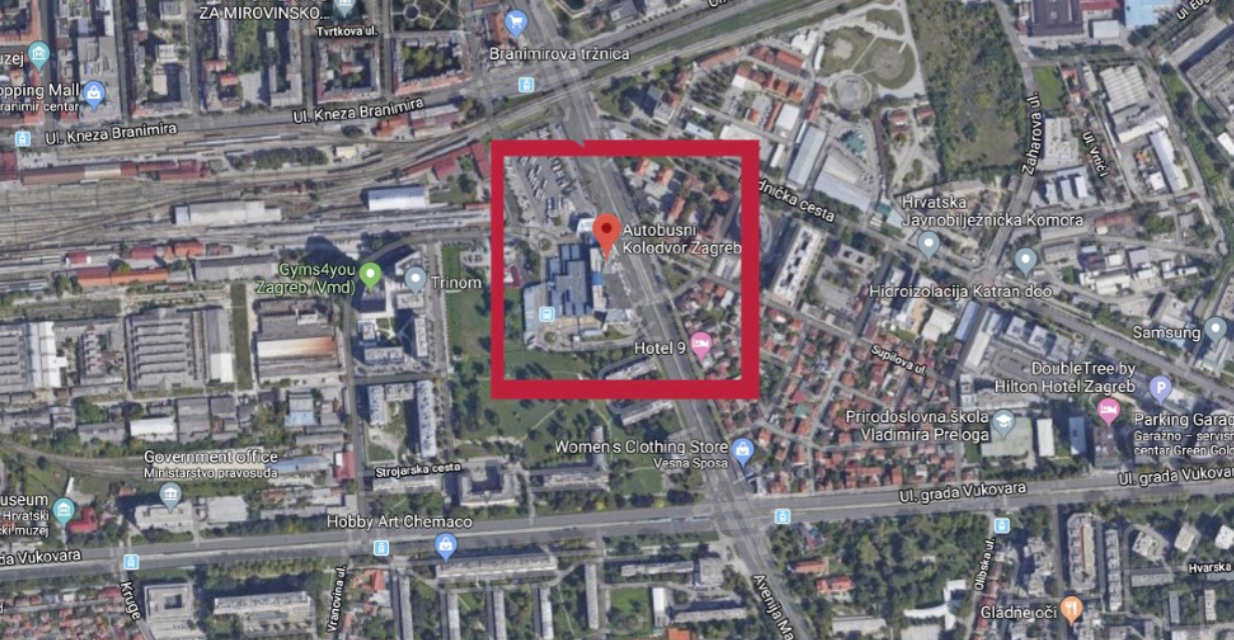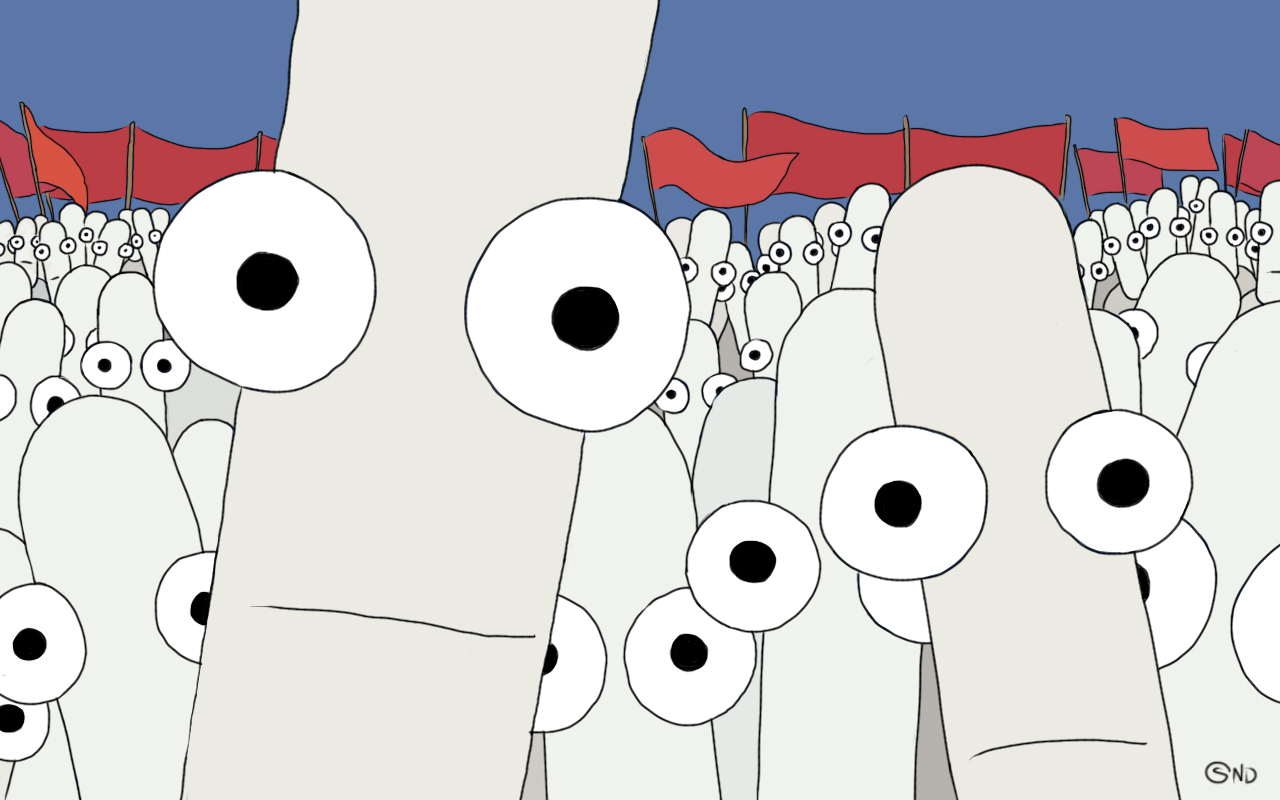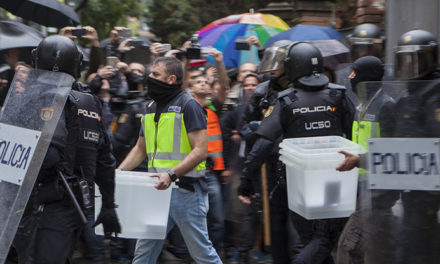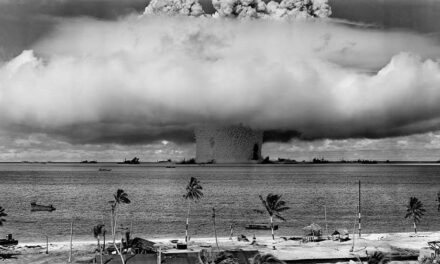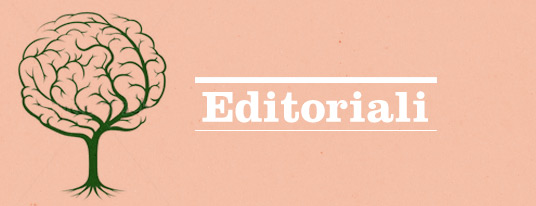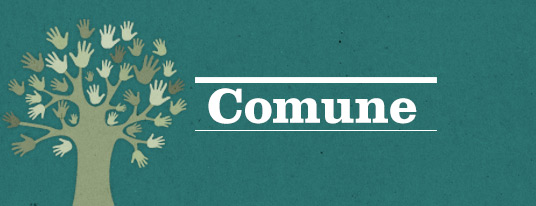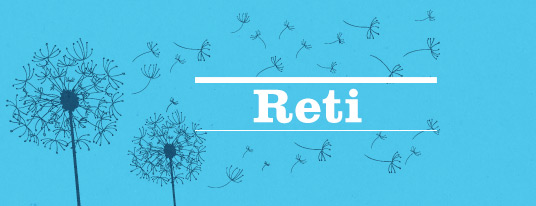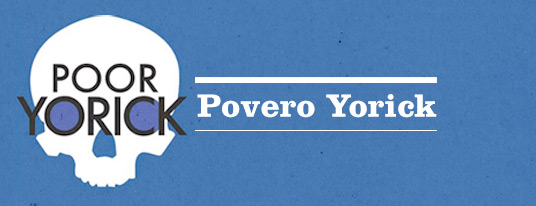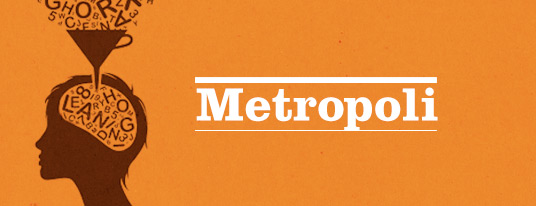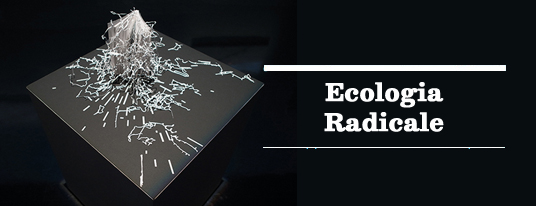Pubblichiamo qui altri due report, in italiano e in inglese, dei respingimenti in Croazia e Bosnia Erzegovina. L’introduzione di Fabio Papetti alle interviste e il primo report sono disponibili qui.
ITALIANO
REPORT 2
1 intervistato – Algeria – Gruppo di 4 persone. Intervista condotta il 25/03/2019 a Sarajevo
Tipo di incidente: Respingimento – Violenza fisica
Posizione: Il gruppo è stato fermato dalle autorità croate alla stazione degli autobus di Zagabria (Cr) e detenuto dentro una stazione di polizia all’interno della città per diverse ore. Successivamente il gruppo è stato deportato al punto di attraversamento del confine in Vinjani Gornji, tra Imotski (Cr) e Posušje (BiH). Il gruppo è stato poi rilasciato in una posizione ignota nelle foreste 20km fuori Mostar (BiH).
Vittime: Numero di vittime: 4. Paese di provenienza: Algeria. Età: 17, 20, 24 e 26 (la persona intervista ha 24 anni). Minori: si. Sesso: M
Data e ora: Il gruppo è stato fermato il pomeriggio del 10/02/2019 e respinto dalla Croazia in BiH verso la mezzanotte dello stesso giorno.
Dettagli: Fogli firmati: Si. Impronte digitali prese: No. Foto fatte: Si. Espresso l’intenzione di chiedere asilo: Si
Descrizione dell’incidente
Le quattro persone del gruppo hanno iniziato il loro cammino nella prima mattina del 10 febbraio prendendo un autobus alle 7 di mattina da Mostar per Posušje. Sono arrivati a Posušje verso le 8 30 di mattina, e successivamente hanno attraversato il confine a piedi. Hanno attraversato il confine non lontano dal punto di attraversamento ufficiale in Gornji Vinjani. Dopo all’incirca due ore di camminata hanno raggiunto Imotski (Cr) per poi prendere un altro autobus per Split. Da lì, sono saliti su un ulteriore autobus per arrivare a Zagabria (Cr) nel pomeriggio dello steso giorno.
Quando sono scesi dall’autobus, quattro poliziotti presenti sul posto si sono avvicinati ed hanno chiesto loro i documenti. I membri del gruppo hanno risposto di non avere documenti. Dopo l’arrivo di altri due poliziotti, al gruppo è stato detto di andare alla stazione di polizia con loro. Due poliziotti sono rimasti alla stazione mentre quattro sono andati con il gruppo dell’intervistato. Sono stati trasportati alla stazione di polizia con un Volkswagen blu con delle sfumature nere. Dopo circa 10 – 15 minuti sono arrivati alla centrale di polizia.
Lì, tutti i membri del gruppo sono stati ammanettati. Non hanno dovuto firmare alcun foglio, nonostante sono stati costretti a scrivere il loro nome e sono stati fotografati. I poliziotti presenti non hanno creduto che il più giovane del gruppo avesse 17 anni. Dopo aver chiesto per un traduttore, è stato detto al gruppo che non era presente in stazione. Successivamente i poliziotti hanno chiesto dove avessero attraversato il confine, alche i membri del gruppo hanno detto di essere entrati in Croazia nel passo tra Posušje e Imotski.
L’intervistato ha ricordato un episodio all’interno della stazione.
Un ufficiale di polizia ha chiesto: “Di cosa avete bisogno qui in Croazia?”
E i quattro del gruppo hanno risposto: “Vogliamo asilo.”
Ma il poliziotto ha detto loro: “Niente asilo qui in Croazia, tornatevene in Bosnia.”
E l’intervistato ha chiesto: “Perchè niente asilo? Qui siamo nella capitale della Croazia.”
“No, non potete restare in Zagabria o in qualsiasi altro posto in Croazia. È chiusa. Potete ottenere asilo in Bosnia”, ha risposto il poliziotto.
Quando l’intervistato ha chiesto nuovamente il perché di tutto ciò, il poliziotto ha schiaffeggiato lui e gli altri tre membri del gruppo sul retro della nuca. Poi, il poliziotto e altri quattro ufficiali hanno iniziato a dare loro colpi sulle braccia. Tutti e cinque i poliziotti presenti e aventi parte attiva durante il pestaggio indossavano delle divise blu scure.
Sempre nella stazione di polizia, i poliziotti hanno preso i soldi, i cellulari, le power banks e gli zaini dei membri del gruppo (in totale 400euro, 4 cellulari e quattro power banks). Quando l’intervistato ha chiesto ai poliziotti di riavere lo zaino per poter prendere del cibo e mangiare, i poliziotti l’hanno ignorato. Non è stato dato al gruppo né cibo ne acqua per tutta la durata della loro permanenza nella stazione di polizia (circa 20 minuti).
Dopo di che, sono arrivati quattro poliziotti in uniformi nere con la faccia coperta e aventi randelli e pistole. Questi hanno detto ai membri del gruppo di salire su un grande van blu, munito di telecamera nella cella posteriore. Durante tutta l’operazione, i quattro ragazzi avevano ancora le loro mani legate.
Diverse ore dopo, calata la notte, il van è arrivato al punto di attraversamento ufficiale tra Imotski e Posušje. I poliziotti croati hanno fatto una chiamata e in meno di cinque minuti è apparsa un’autovettura nera della polizia bosniaca con quattro poliziotti dentro. Questi ultimi indossavano divise nere con la scritta “policija” sul retro. La polizia croata a quel punto ha tolto le manette ai membri del gruppo e ha riconsegnato loro gli zaini, ma non i cellulari e i soldi (400 euro). Poi, hanno estratto i randelli, picchiato i quattro ragazzi e detto loro:
“Non ritornate!”
Successivamente la polizia bosniaca ha detto al gruppo di salire in macchina e sono stati trasportati per circa 20-30 minuti (20km ca.). Si sono fermati in una foresta, e l’intervistato ricorda di non aver visto nessuna luce attorno. C’era la neve, e faceva molto freddo. Gli ufficiali bosniaci hanno poi detto al gruppo di andarsene e di non tornare a Mostar. Quando l’intervistato ha chiesto ai poliziotti se potevano essere portati a Mostar per prendere un autobus o un treno per Sarajevo, i poliziotti hanno rifiutato e li hanno minacciati:
“Non tornate a Mostar! Se ritornate, vi metteremo in prigione, o vi riporteremo al confine col Montenegro”, agitando i loro randelli e dicendo nuovamente di andarsene.
I quattro del gruppo si sono poi incamminati nella foresta. Faceva molto freddo, si sono accampati e hanno mangiato del cibo che avevano negli zaini, riuscendo anche ad accendere un fuoco, trascorrendo la notte nella foresta senza tuttavia riuscire a dormire per via del freddo.
Il mattino successivo, l’11 febbraio, si sono mossi di nuovo. Dopo all’incirca 5 chilometri, hanno incontrato un uomo bosniaco, descritto come molto alto. Il gruppo gli ha raccontato la loro storia e gli hanno chiesto dei soldi per poter prendere l’autobus per Sarajevo.
“Era un brav’uomo”
Questa persona ha dato loro dei soldi e ha indicato ai 4 componenti del gruppo come arrivare alla stazione degli autobus di Mostar. Dopo aver camminato per altri 15 chilometri (circa) i quattro hanno raggiunto la stazione degli autobus senza essere visti dalla polizia. Lì hanno comprato dei biglietti e sono tornati a Sarajevo.
Il gruppo è stato fermato dalla polizia croata alla stazione degli autobus di Zagabria.
Il gruppo è stato consegnato alle autorità bosniache nel punto di attraversamento del confine a Vinjani Gornji. 43.4601109, 17.2848895
—
REPORT 3
1 intervistato – Algeria – gruppo di 3 persone. Intervista presa e condotta a Sarajevo il 15/03/2019
Tipo di incidente: Respingimento – violenza fisica – violenza verbale – rapina – distruzione di oggetti personali (scarpe)
Luogo: Il gruppo è stato arrestato nella città di Jezera (Croazia) ed è stato respinto fino al confine Bosniaco, a circa 5 km di distanza da Velika Kladuša (BE)
Vittime: Numero delle vittime: 3. Intervista condotta in francese. Paese d’origine: Algeria. Età: 23, 27, 31 anni. Minori: no. Sesso: maschile
Data e ora: Il gruppo ha lasciato Bihać (BE) alle prime luci dell’alba del 12/03/2019 e camminato fino a Plitvička Jezera (CR), dove è arrivato verso le 11 di mattina del giorno stesso. Sono stati fermati dalla polizia croata subito dopo e portati alla stazione di polizia di Slunj (CR). Da lì sono stati respinti e portati all’incirca a 5 km di distanza da Velika Kladuša (BE)
Dettagli: Fogli firmati: no. Impronte digitali prese: no. Foto prese: no. Espressa l’intenzione di richiedere asilo: si
Descrizione dell’incidente
Il giorno 12/03/2019 il gruppo ha lasciato Bihać verso le 12 di pomeriggio, camminando in direzione di Izačić (12km). Arrivati, si sono accampati nelle foreste ed hanno dormito un paio d’ore. Verso le 3 di mattina hanno ricominciato a camminare, percorrendo 20km fino ad arrivare, verso le 11 di mattina, al villaggio di Plitvička Jezera (CR). Si sono fermati ad una stazione degli autobus, e lì due ufficiali di polizia hanno approcciato il gruppo. L’intervistato li ha descritti come:
“uniformi nere, con cappello e stivali militari”.
Gli ufficiali hanno detto al gruppo di entrare nel retro del loro furgone, un IVECO bianco. L’intervistato ha descritto di come fosse seduto nel buio del van, con l’aria condizionata accesa:
“faceva molto freddo”
Appena il veicolo è stato messo in moto, il conducente ha iniziato a guidarlo in maniera spericolata, facendo cadere ripetutamente i passeggeri dietro. Dopo all’incirca 30 minuti di guida, sono arrivati alla stazione di polizia di Slunj (CR). Entrati nella stazione, gli sono stati chiesti i documenti:
“Datemi i fogli”
Una volta controllati, i membri del gruppo hanno espresso l’intenzione di chiedere asilo, alche uno dei poliziotti ha risposto loro:
“Niente asilo, andatevene in Bosnia”
Dopo aver controllato la documentazione, i poliziotti hanno preso gli oggetti personali del gruppo: tabacco, accendini, 250 euro, ed un cellulare Samsung A5 2017. una volta finita la perquisizione, i tre ragazzi sono stati portati in una stanza dove sono rimasti per circa 4 ore, senza acqua o cibo (il gruppo non aveva chiesto tali servizi).
Verso le 18,due poliziotti sono entrati nella stanza e hanno detto al gruppo di seguirli. L’intervistato ha descritto i due poliziotti come aventi delle uniformi nere, alti 1.9 metri circa e con dei cappucci tirati su. Entrambi i poliziotti avevano gli occhi blu. Il gruppo è stato fatto salire sul van IVECO bianco, e sono stati trasportati per circa 30 minuti, sempre nelle stesse condizioni dell’andata (nessuna luce, aria condizionata accesa e guida spericolata del veicolo).
Verso le 18:30, il veicolo si è fermato e i tre membri del gruppo sono stati fatti scendere, uno alla volta. L’intervistato è stato il primo a scendere, ed ha descritto il posto come:
“Era una foresta e c’era un fiume”
I due poliziotti hanno intimato a quest’ultimo di inginocchiarsi e di rimuovere le scarpe. L’intervistato ha detto loro che aveva un problema ad un piede, ma i poliziotti l’hanno colpito, e lui allora si è tolto le scarpe. Uno degli ufficiali ha tagliato le suole delle scarpe. Entrambi i poliziotti hanno poi iniziato a picchiarli su tutto il corpo con dei manganelli, mentre urlavano loro:
“Fanculo gli algerini” “Andatevene in Bosnia” “Non ritornate più in Croazia”
L’intervistato si è alzato con qualche difficoltà, e successivamente ha iniziato a correre a piedi nudi verso il confine bosniaco, per poi camminare per altri 5km fino a Velika Kladuša (BE).
Plitvička Jezera – punto approssimativo di dove il gruppo è stato fermato dalle autorità croate.
Slunj- punto in cui il gruppo ha detto di essere stato trattenuto dalle autorità croate.
ENGLISH
REPORT 2
1 interviewee – Algeria – Group of 4 Unrecorded interview conducted on 25/3/19 in Sarajevo
Type of incident: PUSH-BACK – PHYSICAL VIOLENCE
Location: The group was apprehended by Croatian authorities in the Zagreb (Hr) bus station and detained inside of a police station within the city for several hours. The group was later pushed back at the Vinjani Gornji border crossing between Imotski (Hr) and Posušje (BiH), coordinates Set free in unknown location in the forest ca. 20km outside Mostar (BiH).
Victimes: Number of victims: 4. Country of origin: Algeria. Age: aged 17, 20, 24 and 26 years. (Interviewee was 24 years old). Minors: Yes. Sex: All males
Date and time: The group was apprehended in the afternoon of 10/2/19 and later pushed-back from Croatia to BiH near midnight on the same day.
Details: Paper signed: Yes. Fingerprint taken: No. Pictures taken: Yes. Expressed intention to claim asylum: Yes
Description of incident
The four men started their journey in the early morning of February 10th by taking a bus at 7:00 a.m. from Mostar (BiH) to Posušje. They arrived to Posušje around 8:30 a.m. and then crossed the border by walking. They crossed the border not far from the official border crossing at Gornji Vinjani. After an estimated two hours of walking, they reached Imotski (Hr) and from there, they took another regular bus to Split. From Split, they continued with another bus to Zagreb (Hr). They arrived at Zagreb bus station in the afternoon of February 10th.
When they exited the bus four policemen who were present within the station asked them for their documents to which they responded that they did not have any. After two more policemen had joined, the group-members were told that they would be taken to the police station. Two policemen stayed in the bus station while four left with the group. They were transported to the police station in a blue Volkswagen with some black on it. After somewhere between ten and fifteen minutes of driving, they reached the police station.
In the police station, all four men were handcuffed. They did not have to sign any papers, but were told to write their names and were photographed. The policemen reportedly did not believe that the youngest of the migrants was indeed only 17 years old. The four men asked for a translator but were told there is none. The policemen asked them where they had crossed the border, and they said that they entered Croatia between Posusje and Imotski.
The respondent described an exchange in the police station after as follows:
One officer asked the group “What do you need in Croatia?”
They answered: “We want to have asyl in Croatia.”
The policeman told them: “No asyl here in Croatia, go back to Bosnia”
The interviewee asked “Why no asyl, we are in the capital of Croatia here.”
The policeman said “No, you cannot stay in Zagreb or in the rest of Croatia. It is closed. You can take azyl in Bosnia.”
When the respondent asked “Why?” again, the policeman slapped him and his three friends on the back of their heads. Then the policeman and four of his colleagues started to beat the group-members on their arms. The five policemen who were beating wore dark blue uniforms.
In the police station, the officers took their money, phones and power banks (in total 400€, 4 phones and 4 power banks) as well as their luggage. When the respondent inquired about his bag, since he wanted to eat some of his food in there, the police refused him. The men were not given food or water by the police during their time interactions with the police in Croatia. In total, the four men were kept in the police station for around twenty minutes.
After this, four other policemen arrived who wore black uniforms and had their faces masked. They had batons and guns with them. The four policemen told them to get into the back of a large blue van. There was a camera on the ceiling of the back area. The four group-members’ hands were still handcuffed during the whole of the transport.
After several hours of driving, the van arrived to the official border crossing between Imotski and Posušje). It was dark by now. The Croatian policemen made a phone call, and after less than five minutes four Bosnian police officers arrived by a big, black van. The Bosnian policemen were wearing black uniforms with white letters Policija on their back. The Croatian policemen took the handcuffs off and returned the four migrants their bags, however they did not return them their money (400€) and their four phones. They then pulled out their batons, beat the four men and said
“Don’t come back!”
The Bosnian policemen then told the men to get into their van and drove with them for an estimated 20 to 30 minutes, a distance of around twenty kilometers. They stopped in a forest, and the reporting person said he could not see any lights. On the ground there was some snow and it was very cold. The four Bosnian police officers then told the migrants to leave and not to return to Mostar. The reporting person asked the police to bring them to Mostar and explained that the migrants would not stay there but take a bus or a train to Sarajevo. But the policemen refused that, and they threatened:
“You won’t come back to Mostar! If you come back, we will put you in prison. Or we will take you over the border to Montenegro”.
They started to threaten the migrants with their batons and again told them to leave. The four men then started to walk in the forest but stopped after a while. It was a very cold night. They had food with them in their bags and they managed to make a fire but they could not sleep. They spent the rest of the night in the forest.
On the next morning, February 11th, they resumed walking. After an estimated five kilometers, they met a Bosnian man who was very tall. They told him their story and asked him for money to pay for bus tickets to Sarajevo. “He was a good man”
He gave them some money and showed them the direction to walk to the bus station of Mostar. After another fifteen kilometers of walking (estimated), the group reached the bus station of Mostar without being seen by the police.
They bought tickets and returned to Sarajevo by bus.
—
REPORT 3
1 interviewee – Algeria – Group of 3. Recorded interview conducted on 15/3/19 in Sarajevo
Type of incident: PUSH-BACK – PHYSICAL VIOLENCE – VERBAL ABUSE – ROBBED – DESTRUCTION OF PERSONAL BELONGINGS (SHOES)
Location: The group was apprehended in the town of Jezera (Hr) and was pushed back approximately 5 km outside of Velika Kladuša (BiH).
Victimes: Number of victims: 3 Interview conducted in French Country of origin: Algeria. Age: 23, 27, 31 years old. Minors: no. Sex: All males
Details: Paper signed: No. Fingerprint taken: No. Pictures taken: No. Expressed intention to claim asylum: Yes
Description of incident:
The group left from Bihać on March 12th at around 12:00 pm to Izačić (12 km) walking. They arrived to Izačić and slept in the woods a pair of hours. Around 3:00 am they walked around 20 km to the village of Plitvička Jezera (Hr), which they arrived to at around 11:00 am. They stopped at a bus station at which point two police officers approached them. The interviewee described them as wearing:
“Black uniform, with hat and military boots”.
The officers told the group to enter into the back of their vehicle which was white IVECO van. The respondent described sitting in the back of the van in the dark, with the air conditioner turned on.
“It was very cold”
As the vehicle began moving, the officers changed the speed of the van erratically which made the group-members fall over repeatedly. After around thirty minutes of driving, they arrived to the Slunj (Hr) police station. Upon entering the station, the officers present asked the respondent for his documentation:
“Give me papers”
While they were checking their papers, the group-members expressed their intention to claim asylum and one of the police officer answers them:
“No asylum. Go Bosnia”
After they checked the documentation, the officers took all the respondents personal belongings: tobacco, lighters, 250€, and a Samsung A5 2017 mobile phone. Once the officer finished frisking them, the group-members were brought to a room where they were kept for around four hours, without food or water (they did not ask for either).
At around 6:00 pm later that day, two police officers entered into the room and told the group-members to follow. The respondent described them as wearing black uniforms, standing at approximately 1.9 meters high, and having hoods on. Both officers were described as having blue eyes. The group of three were brought to the White IVECO van and driven around thirty minutes, again with no lights, the air conditioner turn on high, and variable vehicle speeds.
At around 6:30 pm, the vehicle came to a stop and the group-members were told to exit one at a time. The respondent was the first to get out of the van. He described the place as being heavily wooded:
“It was a forest and there was a river”.
The two police officers told him to kneel and take off his shoes. He told them that he had a problem with his feet however they hit him so he took his shoes off. One of the officers cut soles of his shoes. The officers then started to hit him with batons in the feet and all around the body while they were shouting him:
“Fuck Algerian” “Go Bosnia” “Don’t come to Croatia”
After struggling to stand up, the respondent ran away barefoot over the border to BiH and walked around five kilometers back to Velika Kladuša (BiH).

